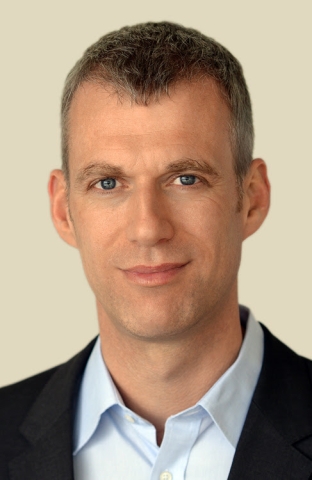5 Trends to Watch in 2017 for the Exhibition Industry

By Kai Hattendorf, UFI managing director/CEO
Predicting the future is basically impossible. But estimated guesses are possible, even in times as these. So, as in previous years, we have held many conversations on showfloors, at conferences, and at numerous events all around the world to identify the core themes that the UFI team feels will impact the global exhibition industry in 2017. So today, let me share with you “UFI’s 5 trends to watch in 2017”:
1. Growing uncertainties
In recent months, we have seen a U.K. vote on Brexit, a failed coup in Turkey, growing tensions between Russia and the West, and a U.S. presidential election that shows a deeply divided country. All of these amount to a growing level of uncertainty around politics and business. Are trade agreements to be scrapped? Will travel to vital markets remain easy (and safe)? How will markets adapt to changing currency levels? There are numerous questions being addressed in corporate boardrooms all around the world. And they will impact how companies choose to participate in exhibitions in a more protectionist environment. How this will play out exactly for our industry is impossible to see, however, let’s not forget that, especially in difficult times, exhibitions are used by whole industries to meet and to take stock themselves.
2. Geographical polarisation of global shows
Germany has long been a role model for growing global leading shows. In recent years, some of the strongest German show brands, whilst remaining strong at their home bases, have seen their own shows in Asia reaching and exceeding the exhibitor or visitor numbers at their home shows. In light of the current growth of protectionism, this growth of regional show champions in Europe, Asia, and the Americas might very well accelerate. This will provide new opportunities for national and regional organisers, going it alone or aligning with international players. In huge internal markets, like the US and China, there are many excellent for-profit or association organisers who currently deliver successful shows without aiming at an international audience.
3. Digitalisation
The perennial love-hate relationship between our industry and digitalisation continues, but as ever more companies are digitising their own processes, data management and customer processes, they are proceeding fast on their very own digital learning curve. Chief Digital Officer positions have become more common in the past twelve months, working with the CEOs or on the Board on fast-tracking digital developments. At the same time, the fear of major disruption, in the style of Uber disrupting the taxi business, has diminished. In its stead, a broad field of companies are offering digital service solutions that can benefit organisers as well as cut into segments of their business model. Service providers are already forming alliances with these event tech companies to offer their services in bundles to organisers, both to minimise the complexity and to strengthen their own role as ever more important partners. One “place to watch” is data handling and privacy laws. The growing complexity here will put strain on everyone, and Russia’s recent ban on LinkedIn shows the pitfalls here.
4. Operational excellence
In almost all leading international markets, there is no lack of venue space that can be used to run successful exhibitions. However, many organisers find it difficult to work with a number of venues, citing a lack of operational experience and day-to-day processes at the venues and local support companies. While quality infrastructure is a must for hosting exhibitions, securing and training quality staff is an ongoing challenge. This has repercussions for issues as diverse as Health & Safety during build-up and operations to on-site security or exhibitor services. It is an interesting observation that many European venues, while investing billions in upgrading their venue capacities, are also eager to invest in staff training and development. Venues run by international companies in developing markets are also taking a lead on staff training in these markets, quickly setting themselves apart from reginal competitors. In general, the growth of exhibitions in Asia and the construction of venues to accommodate them has strained the labour pool, making operational excellence even more important, but harder to achieve.
5. Business models in review (well, maybe)
Finally – the growing levels of uncertainty, waves of digital changes, and shifting economic climates are all leading to a fresh new look at where the exhibition business as a whole is headed. With “business as usual” being less of an option, organisers, venues, and service providers are all increasingly open to change, maybe even to disrupting themselves. Value propositions are being challenged, new and different talent is being hired. Exhibitions are adding ever more content (and making money by doing so) and utilising data ever more intensely. Private equity run organisers are setting the pace for change, challenging the status quos. All this leads to an increasing focus on finding, and retaining, the right staff – everywhere from boardroom to administration. The game of musical chairs for leadership positions in our industry will for sure continue.
This article first appeared on LinkedIn HERE.


Add new comment